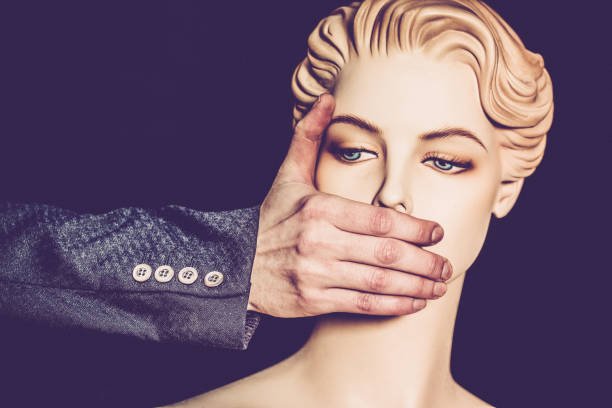Reasons why Discrimination Against Gender is Illegal in the South African Constitution:
Discrimination against gender, also known as gender discrimination, refers to the unequal treatment of individuals based on their gender or gender identity. This can take many forms, including unequal pay, denial of educational or employment opportunities, and gender-based violence.
Gender discrimination is a pervasive issue in many societies, including South Africa. Women and girls are often the primary victims of gender discrimination, facing systemic barriers to equal opportunities, and experiencing higher levels of violence and abuse compared to men.
In South Africa, discrimination against gender is illegal under the Constitution, which guarantees equality and non-discrimination for all citizens. The Promotion of Equality and Prevention of Unfair Discrimination Act of 2000 also provides a framework for combating discrimination and promoting equality.
Despite these legal protections, gender discrimination remains a significant challenge in South Africa. Women continue to face a range of barriers to equal opportunities and often experience discrimination in areas such as education, employment, and healthcare.
Efforts to address gender discrimination in South Africa include initiatives to promote gender equality, such as the National Gender Policy Framework and the Women’s Empowerment and Gender Equality Bill. These initiatives aim to address the underlying causes of gender discrimination, such as patriarchal attitudes and gender stereotypes.
Overall, discrimination against gender is a pervasive and harmful issue that undermines the rights and opportunities of individuals based on their gender identity. While progress has been made in addressing gender discrimination in South Africa, more work is needed to achieve true gender equality and eliminate discrimination in all its forms.
Reasons why Discrimination Against Gender is Illegal in the South African Constitution
Discrimination against gender is illegal in the South African Constitution for several reasons:
- Equality: The South African Constitution guarantees equality for all citizens, regardless of gender. Discrimination against women or any other gender identity is therefore unconstitutional and illegal.
- Human dignity: Discrimination against women can violate their human dignity and undermine their status as full and equal members of society. The Constitution recognizes the importance of human dignity and prohibits any form of discrimination that violates this fundamental value.
- Non-discrimination: The Constitution prohibits discrimination on any grounds, including gender. This means that women have the right to be treated fairly and without discrimination in all areas of life, including employment, education, and healthcare.
- International obligations: South Africa has ratified several international treaties and conventions that prohibit discrimination against women. These include the Convention on the Elimination of All Forms of Discrimination Against Women (CEDAW) and the Beijing Platform for Action.
- Historical injustices: Discrimination against women has been a pervasive issue in South Africa’s history, with women facing systemic discrimination and inequality under apartheid. The Constitution seeks to address these historical injustices by promoting equality and non-discrimination for all citizens.
Overall, discrimination against gender is illegal in the South African Constitution because it is fundamentally unjust and violates the basic principles of equality, non-discrimination, and human dignity. By prohibiting gender discrimination, the Constitution seeks to promote a more just and equal society, where all individuals can fully realize their human rights and potential.
Also Read:
- 12 Reasons why incidents of Gender-based Violence in Communities Continue
- Why South Africans need to help those Affected by Gender-based Violence
- How gender inequality in relationships could contribute to sexual abuse
- How gender inequality in relationships could contribute to teenage pregnancy
- Breaking the Cycle: How Society can Contribute to the Ongoing Displays of Gender Stereotypes in SA Communities
- The Causes of gender-based Violence During Lockdown
- The Negative Impact of Gender Differences in Sports Participation
- Strategies that Girls could Implement to Challenge Gender Stereotypes within the school
- 20 Examples of Traditional Gender Roles
- Why Both Men and Women could become Victims of Gender-based Violence
- What can Victims of Gender-based Violence do to Ensure Safety
- Reasons why Discrimination Against Gender is Illegal in the South African Constitution
- How Can NGOs Take Concrete Steps to Eradicate Gender-Based Violence?
- At what Age do Children Make Gender-Stereotyped Game and Toy Choices?
- Reasons Why Survivors of Gender-based Violence may Feel Hesitant to Report Human Rights Violation
- Strategies that Responsible Citizens may use to Help Victims of Gender-based Violence
- Feminist Legal Theory: is it Wrong to Treat Men and Women Differently on the Basis of Gender
- 10 Causes of Gender-Based Violence in South Africa with Examples
- A Critical Discussion on Gender-Based Violence as a Human Rights Violation in South Africa: Acts and Examples
- The Devastating Effects of Gender-Based Violence in South Africa: Real-Life Examples and the Way Forward

